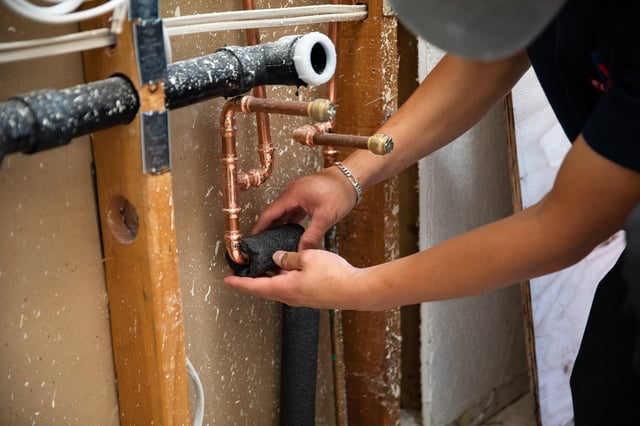
Efficient Home Office Layouts for Maximum Productivity
In today’s fast-paced world, the landscape of work is rapidly evolving, with more individuals opting for remote work setups. With this shift, the importance of creating a home office layout that promotes productivity has never been more critical. Let’s delve into some efficient home office layouts that can maximize your productivity and enhance your work-from-home experience.
Selecting the Right Location
The first step in designing an efficient home office layout is selecting the right location within your home. Ideally, your workspace should be situated in a quiet area away from distractions. Choose a spot with ample natural light to boost mood and energy levels throughout the day. Additionally, consider factors such as proximity to power outlets and internet connectivity when deciding on the location of your home office.
Optimizing Ergonomics
Ergonomics play a crucial role in creating a comfortable and efficient home office layout. Invest in a quality ergonomic chair that provides adequate support for your back and promotes good posture. Position your desk at the correct height to prevent strain on your neck and shoulders. Consider incorporating adjustable elements such as standing desks or monitor arms to accommodate different working preferences and promote movement throughout the day.
Creating Functional Zones
To maximize productivity, consider creating distinct zones within your home office for different tasks. Designate a specific area for focused work, equipped with a comfortable chair and a clutter-free desk. Set up a separate zone for creative brainstorming or collaborative work, complete with a whiteboard or corkboard for jotting down ideas. By creating functional zones, you can maintain organization and focus on the task at hand.
Prioritizing Storage Solutions
Effective storage solutions are essential for maintaining a tidy and organized home office layout. Invest in filing cabinets, shelves, and storage bins to keep documents, supplies, and equipment neatly organized and easily accessible. Utilize vertical space to maximize storage capacity without taking up valuable floor space. Consider incorporating multifunctional furniture pieces such as desks with built-in storage or wall-mounted organizers to optimize space efficiency.
Incorporating Technology
In today’s digital age, technology plays a central role in the modern home office. When planning your layout, ensure easy access to power outlets and internet connectivity to support your technological needs. Consider cable management solutions to keep cords and cables organized and out of sight. Invest in quality technology equipment such as a reliable computer, printer, and ergonomic accessories to streamline your workflow and enhance productivity.
Promoting Collaboration and Communication
If your work involves collaboration with colleagues or clients, consider incorporating elements into your home office layout that facilitate communication and collaboration. Set up a dedicated area for video conferencing equipped with a high-quality webcam and microphone. Create a comfortable seating area for virtual meetings or brainstorming sessions. By promoting collaboration, you can maintain connectivity with your team and foster a sense of teamwork and camaraderie.
Personalizing Your Space
Finally, don’t forget to infuse your personality into your home office layout to create a space that feels uniquely yours. Incorporate decorative elements such














 Every worksite needs to be clean and orderly in order to function safely and productively. Sanitation is especially important in the food product manufacturing industry. Federal laws and standards are explicit and stringent in mandating how food products are manufactured with specifications on industrial equipment and industrial supplies used in this industry. When it comes to producing foodstuffs, any contamination from bacteria or even dirt can cause health problems for end consumers.
Every worksite needs to be clean and orderly in order to function safely and productively. Sanitation is especially important in the food product manufacturing industry. Federal laws and standards are explicit and stringent in mandating how food products are manufactured with specifications on industrial equipment and industrial supplies used in this industry. When it comes to producing foodstuffs, any contamination from bacteria or even dirt can cause health problems for end consumers. Contaminants can steal productivity from your machine’s hydraulic system without you knowing it. Even a skilled operator might not notice a drop in responsiveness until the system has lost 15-20% of its power. This translates into five working days with only the performance of four. Imagine the loss in an
Contaminants can steal productivity from your machine’s hydraulic system without you knowing it. Even a skilled operator might not notice a drop in responsiveness until the system has lost 15-20% of its power. This translates into five working days with only the performance of four. Imagine the loss in an  Every worksite needs to be clean and orderly in order to function safely and productively. Sanitation is especially important in the food product manufacturing industry. Federal laws and standards are explicit and stringent in mandating how food products are manufactured with specifications on industrial equipment and industrial supplies used in this industry. When it comes to producing foodstuffs, any contamination from bacteria or even dirt can cause health problems for end consumers.
Every worksite needs to be clean and orderly in order to function safely and productively. Sanitation is especially important in the food product manufacturing industry. Federal laws and standards are explicit and stringent in mandating how food products are manufactured with specifications on industrial equipment and industrial supplies used in this industry. When it comes to producing foodstuffs, any contamination from bacteria or even dirt can cause health problems for end consumers. Every worksite needs to be clean and orderly in order to function safely and productively. Sanitation is especially important in the food product manufacturing industry. Federal laws and standards are explicit and stringent in mandating how food products are manufactured with specifications on industrial equipment and industrial supplies used in this industry. When it comes to producing foodstuffs, any contamination from bacteria or even dirt can cause health problems for end consumers.
Every worksite needs to be clean and orderly in order to function safely and productively. Sanitation is especially important in the food product manufacturing industry. Federal laws and standards are explicit and stringent in mandating how food products are manufactured with specifications on industrial equipment and industrial supplies used in this industry. When it comes to producing foodstuffs, any contamination from bacteria or even dirt can cause health problems for end consumers. Contaminants can steal productivity from your machine’s hydraulic system without you knowing it. Even a skilled operator might not notice a drop in responsiveness until the system has lost 15-20% of its power. This translates into five working days with only the performance of four. Imagine the loss in an industry such as mining.
Contaminants can steal productivity from your machine’s hydraulic system without you knowing it. Even a skilled operator might not notice a drop in responsiveness until the system has lost 15-20% of its power. This translates into five working days with only the performance of four. Imagine the loss in an industry such as mining.